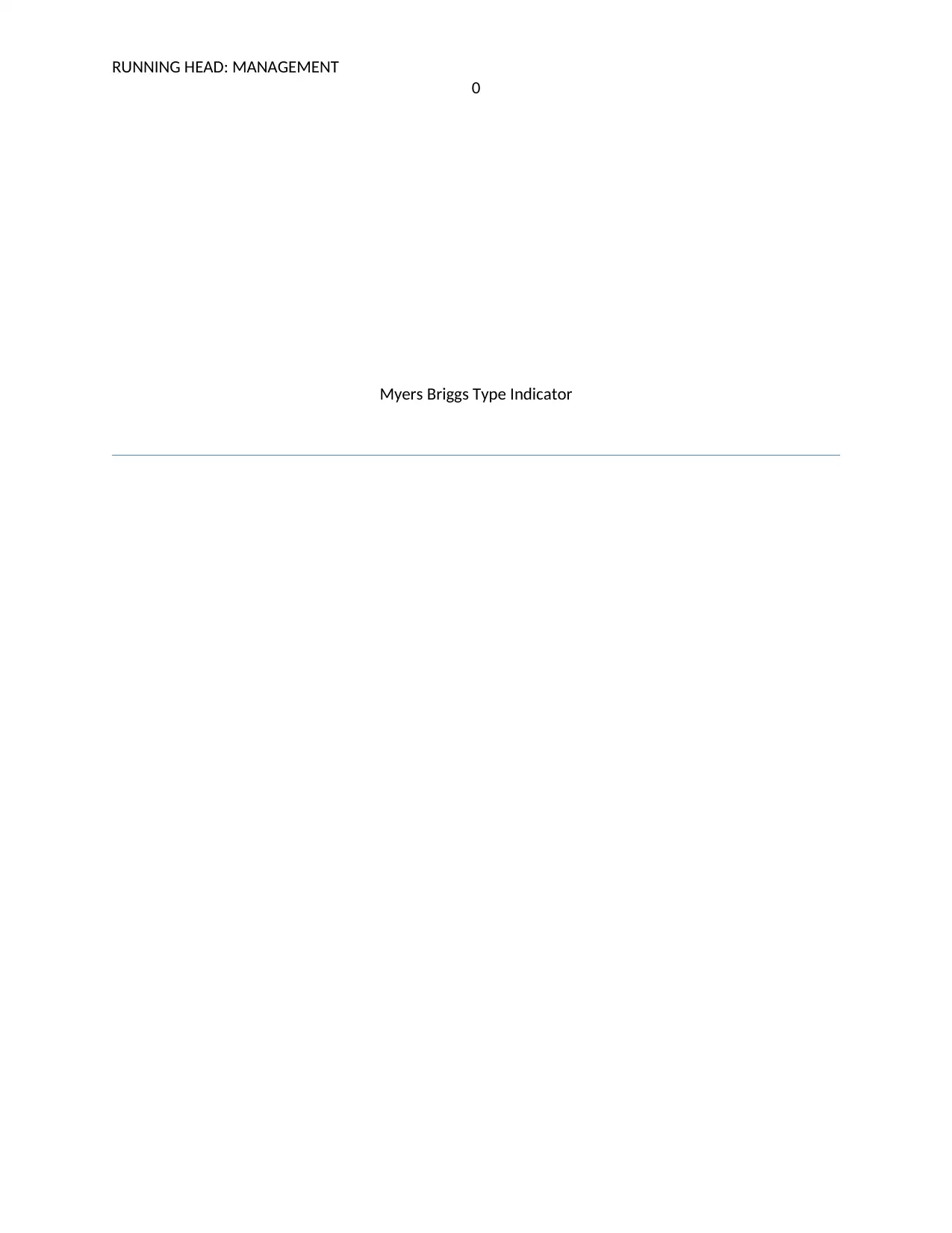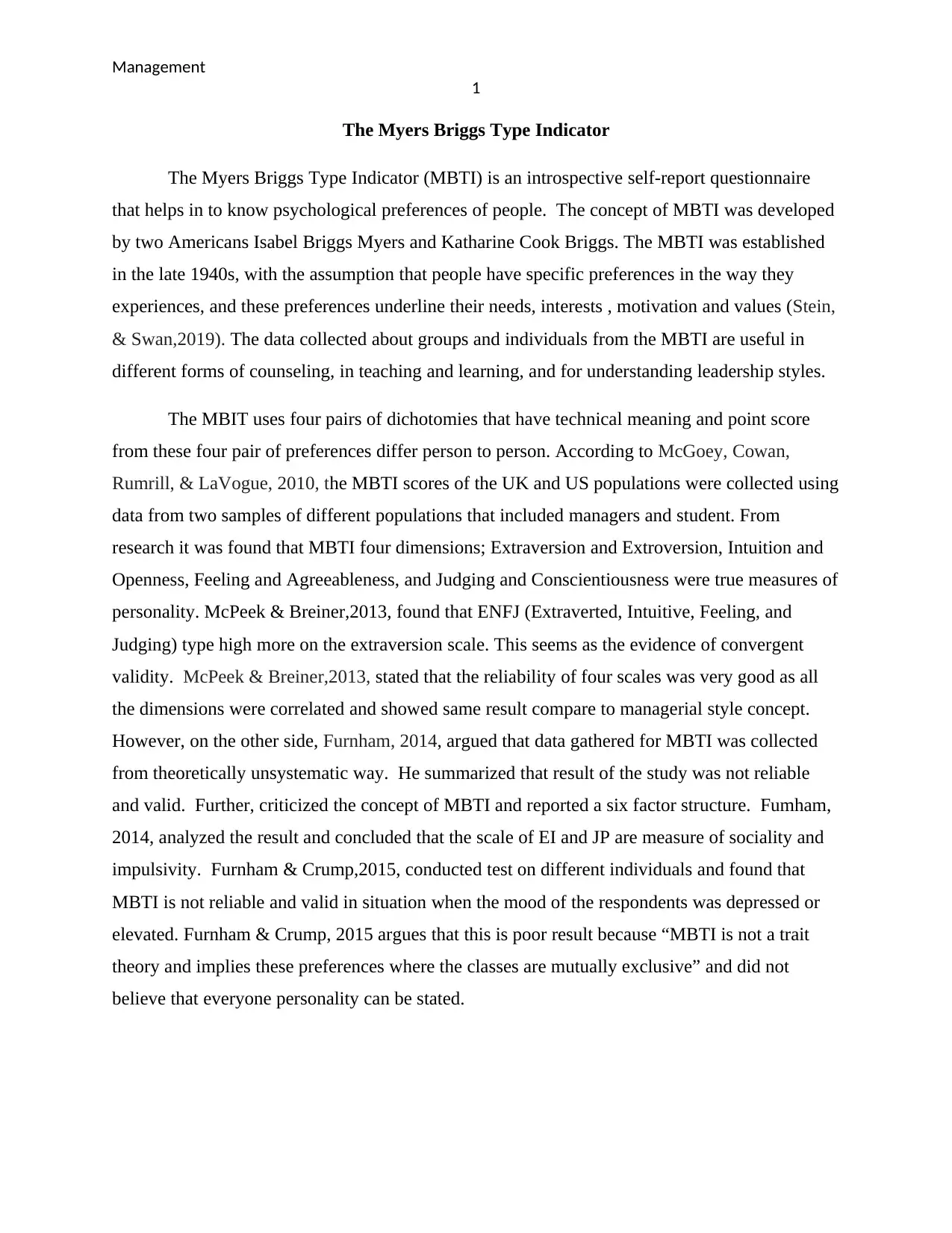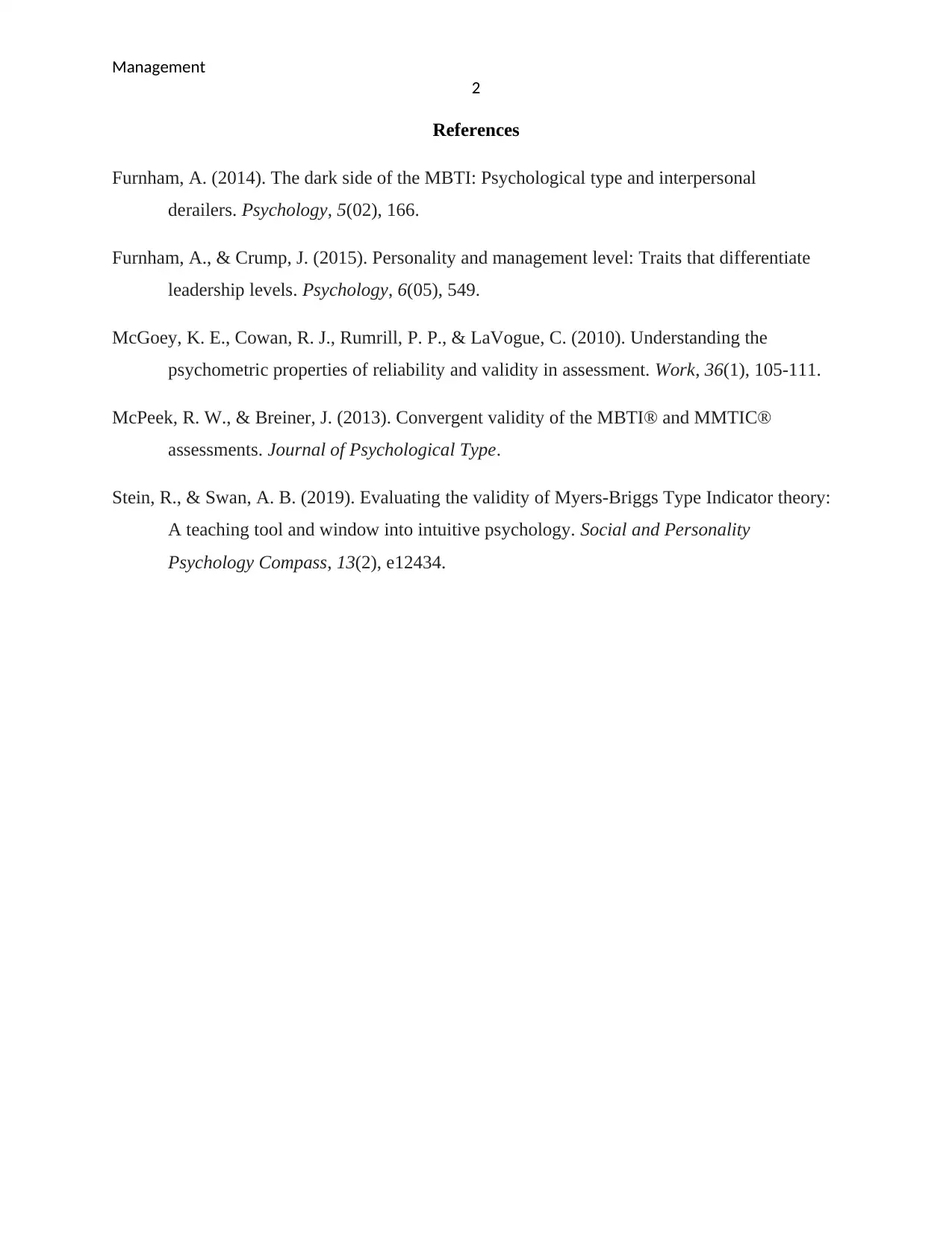Analysis of the Myers-Briggs Type Indicator in Management Context
VerifiedAdded on 2022/09/13
|3
|613
|81
Report
AI Summary
This report examines the Myers-Briggs Type Indicator (MBTI) and its application in management. It explores the historical context of the MBTI, including its origins with Isabel Briggs Myers and Katharine Cook Briggs, and its use in assessing psychological preferences. The report discusses the four dichotomies of the MBTI: Extraversion/Introversion, Sensing/Intuition, Thinking/Feeling, and Judging/Perceiving, and how these influence individual behaviors and preferences. The report includes a review of relevant literature, including studies on the MBTI's validity and reliability. It presents arguments for and against the MBTI's use in management, considering research on its convergent validity and criticisms regarding its theoretical framework. The report also explores how the MBTI can be used in different forms of counseling, teaching and learning, and for understanding leadership styles. Furthermore, the report mentions the views of different researchers regarding the reliability and validity of MBTI. Finally, it concludes with a discussion on the practical implications of the MBTI in the workplace, providing an overview of its strengths, weaknesses, and relevance in management practices.
1 out of 3






![[object Object]](/_next/static/media/star-bottom.7253800d.svg)